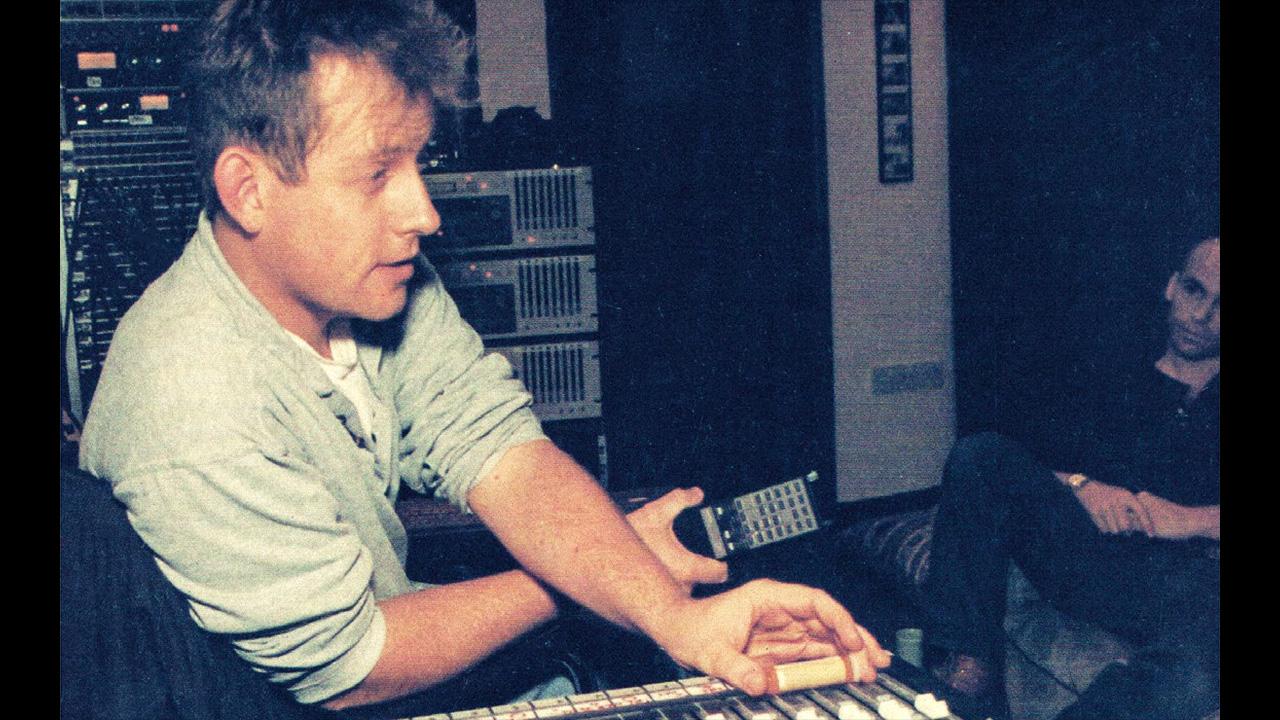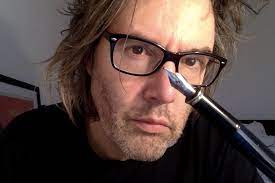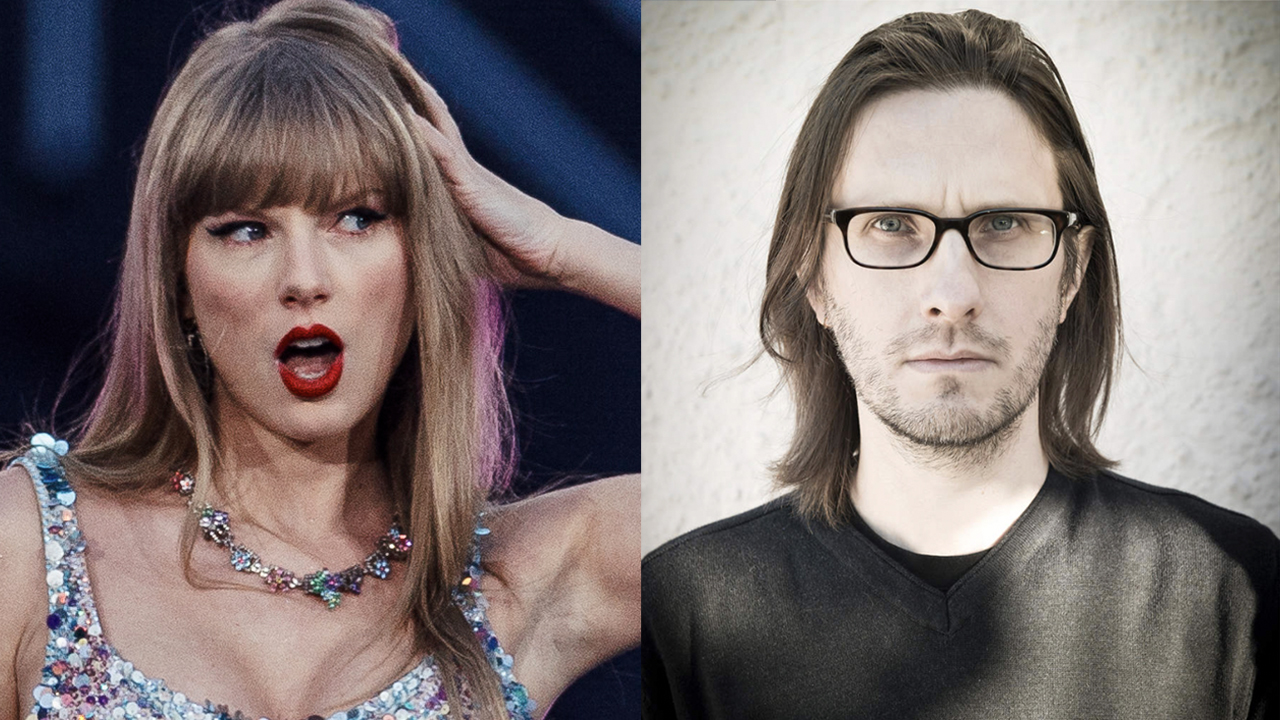“The song was haunted! Dropouts, disks failing, the channels on the desk would stop working. The guitar had just gone. It wasn’t one of my favourite albums”: Marillion producer Dave Meegan’s fight to deliver Afraid Of Sunlight
He eventually came to love the 1995 release – but he’s glad he didn’t like it at the time, and he helped the band develop a method of working they still use today

Dave Meegan partnered with Marillion on a slew of pivotal albums, helping the band develop a method of working that they still use today. But when he completed 1995 record Afraid Of Sunlight he didn’t think the team had really delivered. His attitude changed over time.
Dave Meegan produced Marillion albums Brave, Afraid Of Sunlight, Anoraknophobia and Marbles, plus mixing 1997’s This Strange Engine – though his input goes far beyond sitting behind the studio glass and asking for more cowbell.
That said, his first interaction with the band wasn’t something he thought might ever lead to collaborative musical greatness. “They were typical rock stars,” says Meegan with a laugh. “Oh God, yes: unbearable.”
In late 1983, Marillion were in Sarm East Studios in London recording Fugazi. Meegan, in an embryonic stage of his career, was that album’s tape op. “They were living the life,” he remembers. “They were just full of drive and confidence; they kind of knew the world was theirs.
“There were really big artists coming into Sarm all the time and it didn’t faze them a bit. It felt as if it was their place, especially Fish. But you could tell they could back it up. I must have been impressed, because I later recommended Ian Mosley to play drums on Propaganda’s Dream Within A Dream for Trevor Horn.”
Ten years on, and the band – now fronted by Steve Hogarth – and Meegan were in a whole other world, about to create something brilliant in the shape of Brave. But they were bogged down by the process of writing, recording, rewriting and re-recording; lost in the details, lost in a residential château, lost in France.
Meegan’s intricate approach to poring over each take combined with a band stuck in a stop-start rut, plus an antsy EMI A&R man who was eager to see some quick and cheap results, made for a protracted period in some hideous limbo. “It’s a great record,” says Meegan, “but at the cost of normal life sanity.
Sign up below to get the latest from Prog, plus exclusive special offers, direct to your inbox!
“I think it was the same for everybody; you get yourself wrapped up in it, and you exclude yourself from reality. You’re calling home less, sort of fading off into the distance. It must be a why monks go to a monastery – to take their religion to another level. It was a great experiment, and certain tracks would never have happened without that. But it was certainly not to be repeated. Two albums like that would break a band up, I think.”
As fastidious in life as he is in his mixing and production, Meegan has checked his diaries regarding the Afraid Of Sunlight sessions before we speak; he’s check that, yes, one of Marillion’s greatest and most enduring albums was wrapped up and recorded in a thrifty three months.
Meegan sayd the band, fresh off the Brave tour, were in peak musical form – “they were like jazz musicians” – and keen to get to work in their new Racket Club studio space. It was also the continuation of a way of doing things the band had developed with Brave: jamming and writing together then letting Meegan distill the recorded elements down to their essence, and translating that into songs.
“It’s down to memory,” says Meegan. “I’ve got more mental RAM than they have. And since producing Marbles I’ve had a diagnosis of autism. Now it makes sense that every time a bit of music was jammed, I’d go home, log it, give it a name. I can remember every piece of music I’ve ever heard since about the age of about two.
“So when Marillion played something, I’d go, ‘Oh my God, that would be so good with this.’ And then I’d sort of rough it up for them physically so they could hear it. And that was the start of it.”
I love that Californian vibe on Afraid of Sunrise – even though it was recorded during a snowstorm
He also pushed to include both tracks Afraid Of Sunrise and Afraid Of Sunlight on the album. “I felt like Solomon and the two children – there was no way I was going to cut one in half. Also, everybody loves what we’re playing on both versions, so it wasn’t that hard to convince the band to include both.
“It’s not a concept album, but there’s definitely a singular idea going through it. So using the same lyric part across both musical ideas ties it together somehow; it makes you look at the album differently. I love that Californian vibe of Sunrise – even though it was recorded during a snowstorm.”
But it wasn’t all plain sailing. “I used to always say that Out Of This World was haunted,” the producer says, referring to the song about Donald Campbell’s fatal water speed record attempt in 1967. “It was weird. Dropouts and disks failing all the time; and even when we transferred it all to two-inch tape, the channels on the desk would stop working.
“I was trying to put the mix down one time and the guitar had just gone, and the actual panel on the desk had just died. I was really careful to make sure that when we put down final versions, we actually did get a final version.”
I realised it’s a bloody good album – you know, ‘How did we do that?!’
Meegan admits: “It wasn’t one of my favourite Marillion albums after we’d finished it. It was only when I went back to it in 1999, when it was remastered, that I realised it’s a bloody good album – you know, ‘How did we do that?!’ Which is good in a way, because after we’d done Marbles, I was so happy with that, it helped me decide to stop working.
“I knew Marbles would let me go out on a creative high. I’ve told myself since then that it’s a good job that I didn’t realise how good Sunlight was at the time, because I would have stopped making records right there and then.”
Philip Wilding is a novelist, journalist, scriptwriter, biographer and radio producer. As a young journalist he criss-crossed most of the United States with bands like Motley Crue, Kiss and Poison (think the Almost Famous movie but with more hairspray). More latterly, he’s sat down to chat with bands like the slightly more erudite Manic Street Preachers, Afghan Whigs, Rush and Marillion.
You must confirm your public display name before commenting
Please logout and then login again, you will then be prompted to enter your display name.




